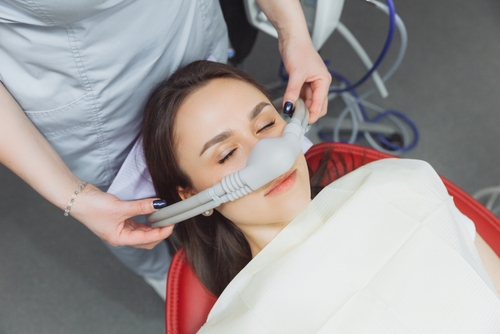Sedation dentistry is a type of dental care in which the patient is given a sedative before, during, or after their visit to help them relax. Dental patients who need this type of treatment often have more stress than usual and can’t help but tense up during procedures that may require some discomfort.
Sedation dentistry can make the trip easier for plenty of people. If you are in discomfort while going through a dental procedure it’s likely because you’re not getting enough anesthesia. This can cause undesirable side effects like anxiety and fear while still providing relief from pain.
 Who is sedation dentistry for?
Who is sedation dentistry for?
Patients who are looking for sedation dentistry are usually ones who have some sort of dental phobia or anxiety. They need the assistance of sedation to help them be calm.
Sedation dentistry can also be used for patients who just don’t have time to deal with their dental issues or for those who have become so accustomed to the pain that they just don’t care anymore.
Benefits of sedation dentistry
Below are some of the benefits of sedation dentistry
- Reduces dental anxiety
It’s not easy to get dental work done when you are not relaxed. Many people suffer from anxiety when they know they need to go the dentist because they are afraid of being in pain. People who use sedation dentistry are known to enjoy their dental visits more than those who do not and do not have anxiety while they’re in the chair.
- Relieves pain and discomfort
A lot of patients fear going to the dentist because they don’t want to feel pain or discomfort during treatment. Sedation dentistry is usually recommended for people who have sensitivity issues, trauma from previous dental procedures, or cluster headaches during treatments like root canals and crowns. You can get sedation dentistry over at https://sleepdentistry.com/portland/
- Reduces anxiety
A lot of people get anxiety when they know that the dentist is about to use a drill or instrument. People who are sedated feel much more relaxed and calmer during their procedures, this means less anxiety and better management of pain. People who don’t get anesthesia tend to be distracted by the situation and can’t help but tense up or otherwise suffer from fear during all procedures.
- Helps people relax instead of tense up during procedures
When you’re in a situation that’s making you tense up, it can be hard to relax no matter how well you feel before coming into the office. Sedation dentistry allows the patient to relax and feel at ease even though they are in a stressful situation.
- Reduces the chances of vomiting during dental procedures
Many people face the problem of getting sick when they go in for dental treatment. This sometimes happens due to anxiety or due to a bad experience with past procedures. Sedation dentistry patients rarely throw up, if at all, so it’s much more pleasant during their visits. Many dentists use sedation and anesthesia as a way to reduce the possibility of throwing up. This is because when you are sedated you have no control over your body, so there is no way that you can suddenly decide to vomit on your own accord.
- Permits the dentist to work more efficiently
Many times dental procedures can be very time-consuming. Sedation dentistry makes the dentist more efficient because the patient is not as much of a distraction for them.
- Helps patients relax during unconscious procedure
Some dentists use pulpotomy when they need to go deeper into the tooth or jawbone. In this case, sedation dentistry is used to help the patient relax while they are unconscious during their procedure. This means less pain and less risk of developing an infection.
- Less pain than expected
When you get an anesthetic, it can be hard to tell how much pain you will truly feel after the treatment. Pain is subjective and it’s different for everyone, so there isn’t a way for a dentist to tell exactly how much pain the patient will feel after their anesthesia. It’s still possible that some people develop just a small amount of pain during their procedure if they’re not too preoccupied by anything else going on between them and the dentist.
Conclusion
Sedation dentistry is commonly used to help patients who have difficulty relaxing and dropping their anxieties during dental procedures. Sedation dentistry can only be used with those who have a proper medical history of anxiety, claustrophobia, or other medical conditions that could be worsened by sedatives.